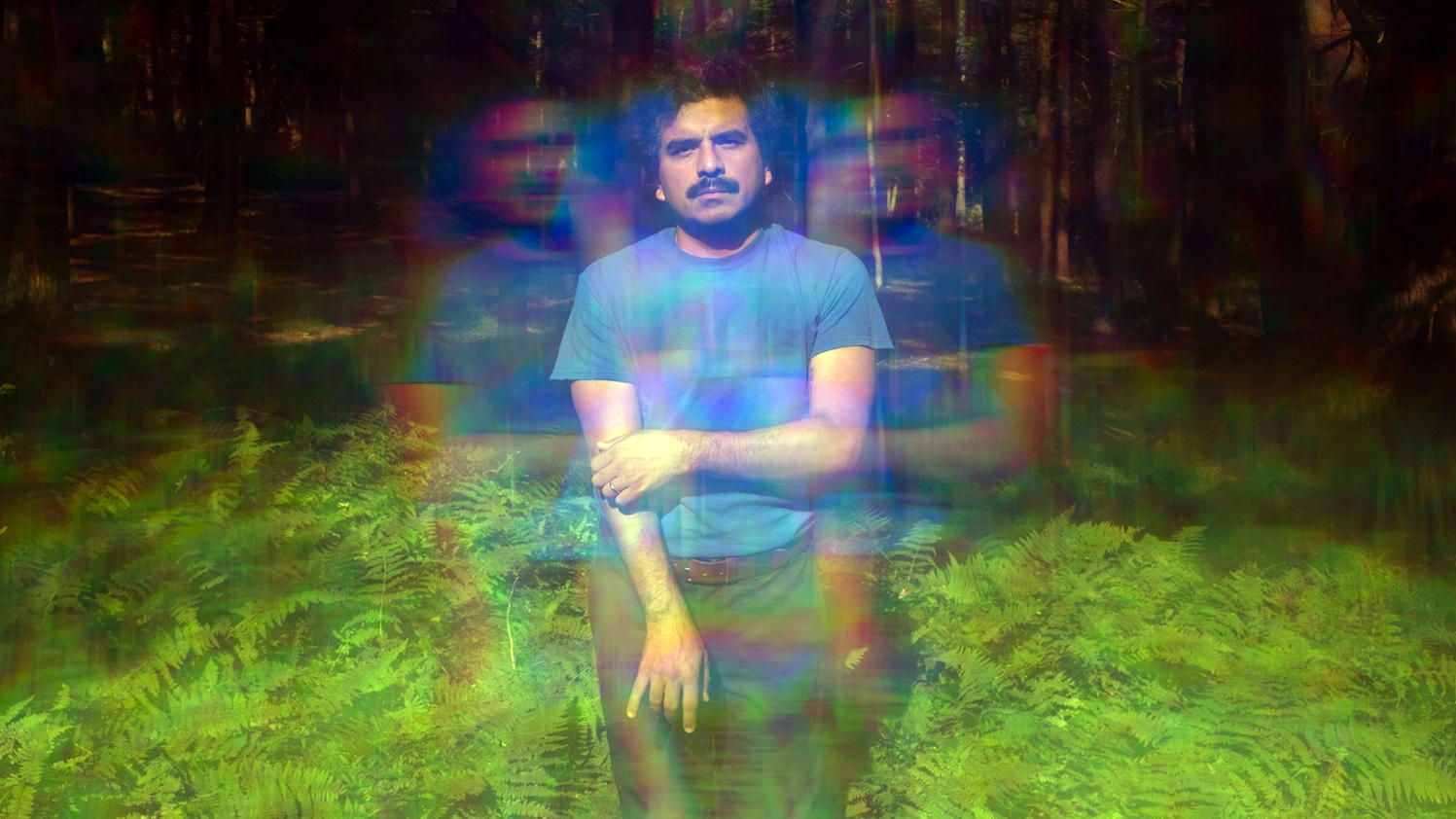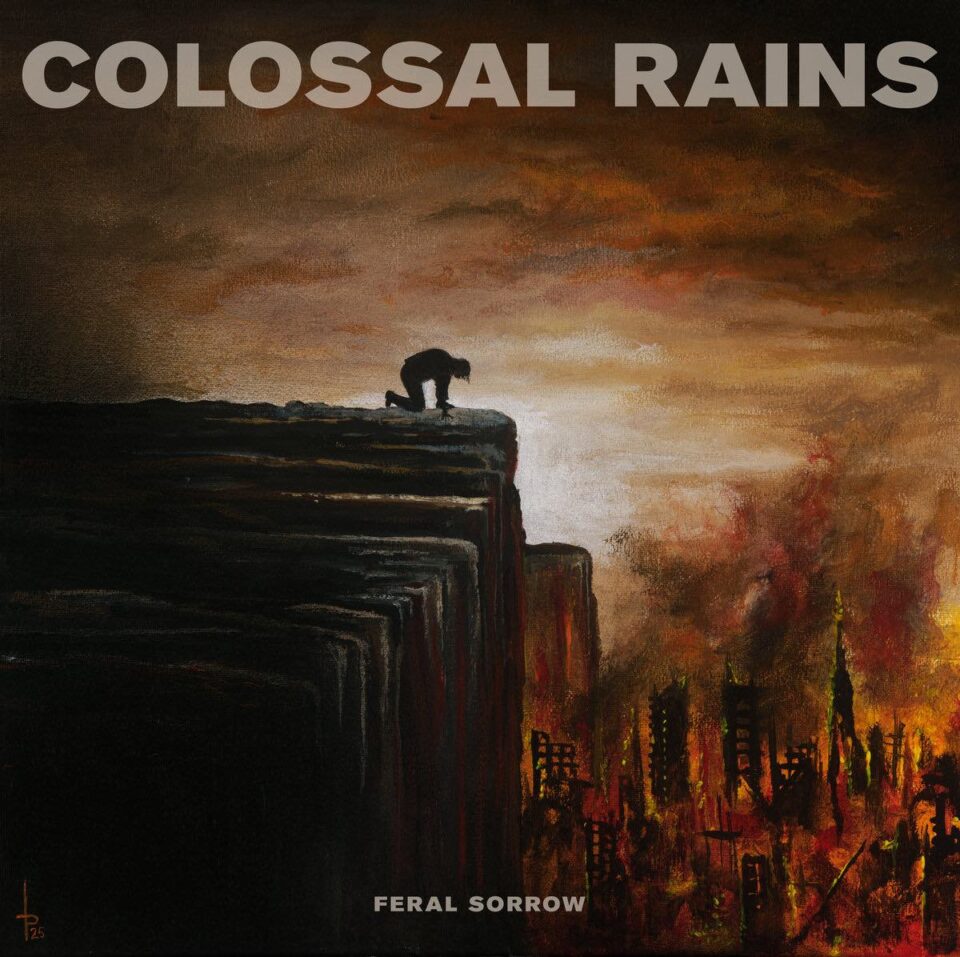Even when there is distress in his lyrics, Roberto Carlos Lange—a.k.a. Helado Negro—always sounds happy. Lange is an Ecuadorian-American musical and visual artist who grew up in Miami, lives in Brooklyn, and has gradually moved from the Spanish-language skronk-folk of 2009’s Awe Owe to the bilingual electronica of 2016’s Private Energy. He radiates an optimistic calm when in conversation, a mellow vibe that plays comfortably into the burrowing grooves and cloudy tones of his softly experimental new album, This Is How You Smile.
To an extent, you can assign such cheer to his new record because there’s a purposeful vagueness in Negro’s lyrics. Maybe he’s giddily contemplating the passion of simple motion on a track such as “Running,” or maybe it’s connected to his ongoing concerns regarding the hassles of his brown-skin brethren in the US, a notion that goes back to his anthem-esque songs like 2015’s “Young, Latin and Proud.”
Currently on tour with Beirut before beginning his own round of solo gigs, Lange talked to us about his alias, life after Trump, and why it’s sometimes better not to reveal too many personal details in your music.
You know, the last time we spoke was the day before Trump got elected President.
Whoa man, get out of here. I was in Richmond, Virginia that day.
So, considering that election and the fact that you are an Ecuadorian-American, how would you say that the US treats people of color?
It’s a hard question to answer. I only have one perspective, which is as a person of color. The response is always the same: Nothing has been that different before or after [Trump]. We’re not in a different time. We’re just in a different form of communication with who is now participating in the conversation. Now there are people who were never part of the these communities, or understood the experience, who understand being threatened or feeling affected. More people are seeing it more often, and there is a guilt that maybe pressures people to participate more.
That’s a very pragmatic way of looking at it. No one person or administration is to blame. Songs like “It’s My Brown Skin” put your politics up front. What are the upsides and downsides there?
All the music I have made has had that edge. Some people didn’t pick up on that [on my older songs] because most of it was in Spanish, bilingual, or Spanglish. I think songs such as “Brown Skin” have socio-political perspective, but they’re not complete and total moments of activism.
“Nothing has been that different before or after [Trump]. We’re not in a different time. We’re just in a different form of communication with who is now participating in the conversation.”
They don’t have to be.
If you listen to the words of “Young, Latin and Proud” or “Brown Skin,” they’re also abstract. There is a lot of ambiguity. I know their intentions, but it’s also important as to what individuals take away from that experience. That’s especially true when I’m on tour running the merch table. People come up to me with some beautiful stories—it happened in Chicago recently, when a kid came up to me to discuss the representation that he felt through the music. That’s what we want it to do: bring out everyone who feels a different way, so that we can all dip in and have a conversation. Bigger than just activism. There’s sharing and creating, too.
I also think that you say as much in what you don’t say as in what you do. And for better or for worse, those songs like “Proud” and “Brown Skin” were anthems.
Oh, absolutely. I also think that, coincidentally, they came out at the time Trump was campaigning with his typical bullshit remarks. They were so specific to Mexicans being rapists and criminals. So there was a direct relationship between people who had been listening to my music and then people who were writing about it—as in, “Hey, this is a direct reaction to Donald Trump.” That was cool with me, and I was behind it 100 percent. Maybe you have a voice and don’t know how to use it.
Those songs were a tool for the voiceless.
Exactly. Yes, they were written as the opposite of protest songs, but then again, music that can be quiet yet powerful can be more threatening than that which is louder, harder, and faster.
Does Roberto Carlos Lange ever treat Helado Negro as a character through which to speak? It sort of started that way, right?
I think it started as a project, a way to create a new something for myself. I didn’t know how it would evolve in terms of having an alias. Then the alias became more specific to me… I identify with that. It shares a lot of my personal histories and experiences and writing. Outside of that, though, there is no real rule.
“Music that can be quiet yet powerful can be more threatening than that which is louder, harder, and faster.”
When and how did This Is How You Smile start as compared to your other records?
When I was working on Private Energy, I was busy recording a few other things and trying to figure out what to release next. When I finished, I was without a label, and kept thinking, “Oh, maybe this sucks. Let’s do something different.” Some of what I had started at that time became the seeds for my island universe stories, which sidesteps the idea of a normal album cycle. One specific song on the new album, “Fantasma Vaga,” came from that time too. There were sound ideas, if not necessarily song ideas.
In listening to “Running” and other songs on Smile, I can’t help but think that you’re talking to yourself, literally and loudly. So if not you, who else are you speaking to?
I think I purposely tried to conceal and abstract that. It is something that I realized, that music need not articulate every aspect of who I am or the song’s specific context. I’m not asking for anyone to want to know. There’s a desperateness attached to knowing hard truths. Knowing them is not always the answer. There are feelings that you confront, and find different ways of living through—I know that is obtuse and abstract, but I have been trying not to share everything.
I hear you. Some things are personal. We don’t all have to live in a selfie 24/7.
Knowing every artist and every one of their narratives isn’t what it’s cracked up to be. I like the mystery. FL







